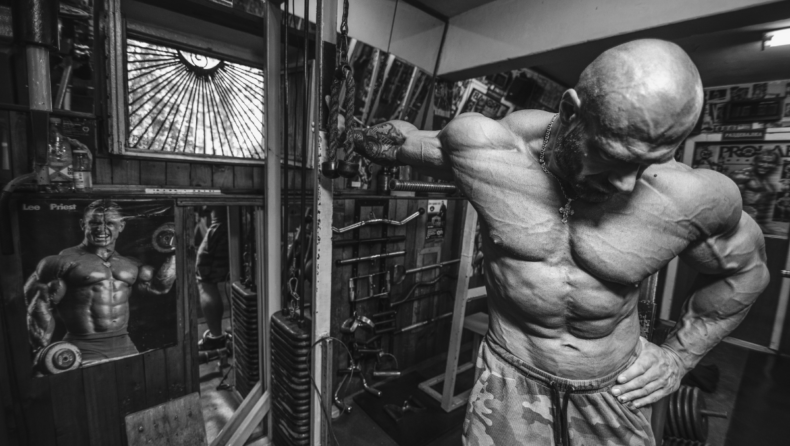Many physicians and experts believe that internet admiration of solid male bodies harms young men’s self-esteem, with the never-ending scroll of six-packs and boy-band faces making them feel insecure and worried.
Men enjoy hypermasculine video games and watch movies with muscular superheroes. Last year’s top-earning films got dominated by CGI-enhanced macho stereotypes: Spider-Man, Shang Chi, Venom, and the whole Marvel universe.
A study published in the Californian Journal of Health Promotion in 2019 looked at boys’ body image. Almost a third of the 149 males aged 11 to 18 who got assessed were unhappy with their physical types. Athletes were more likely than non-athletes to be unsatisfied, with the majority wanting to grow muscles, particularly in the chest, arms, and abs.
These people get so obsessed that they manipulate camera angles and lighting to make it seem like they are three times their actual size.
What Exactly is Bigorexia?
Bigorexia is a body/muscle dysmorphic disorder described by the Diagnostic and Statistical Manual (DSM-5) as an obsession with the thought that your body is too small or not muscular enough. It is a medical condition that causes you to think about gaining muscle in your body every time.
When you have bigorexia, you worry about the concept that something is wrong with your body’s appearance.
Bigorexia is a condition that predominantly affects males, although it can also impact women. Muscle dysmorphia usually appears in late adolescence; however, it can sometimes appear later in life. Although the illness is not a mental problem, the researchers feel it is a subset of body dysmorphic disorder.
Signs of Bigorexia
Heavy weight lifting, an obsession with not feeling strong enough, and a strict dedication to consuming foods that help you lose weight and increase muscle are early signs of this disorder.
- Males suffering from this disorder may check themselves out in the mirror often.
- Working out intensely at the gym
- Steroid use
- Supplement abuse and a continuous intake of protein shakes
- Irritability and violent outbursts
- Depression and mania
- Worrying about missing a gym session and forcing oneself to work out even if they’re injured
- Putting fitness above family and friends
Causes of Bigorexia
Genes: People who have a close relative with the illness are more prone to getting it.
Brain abnormalities: Muscle dysmorphia sufferers may have low amounts of serotonin, a brain transmitter that impacts mood and well-being.
Environment: Childhood troubles, family issues, bullying, emotional trauma, and cultural factors may raise a person’s risk of developing bigorexia.
Other Social Causes
More muscles attract more views: The social media glorified pictures of “highly muscular, lean guys” got more likes and shares than posts depicting men who are less muscular or had excess body fat.
Men who see their bodies as objects for public display worry about getting judged harshly, which frequently leads to obsessive exercise and other healthy practices that may severely affect their well-being. Some have the urge to build more muscles seeing social media influencers and celebrities.
Consequences from Bigorexia
According to a Finnish meta-analysis, ingesting too much-powdered protein may also create issues with metabolism and digestive discomfort. Bigorexia may also contribute to social relationships. Many young men who overtrain and eat too strictly miss meals with family and friends, causing social isolation, anxiety, and depression.
Many health complications in bigorexia are due to supplements and steroids.
Overexercising frequently causes injury or damage to muscles, joints, and ligaments.
Self-hatred increases and self-satisfaction decreases even if one gets a perfect body shape.
Treatment for Bigorexia
Bigorexia gets treated with cognitive behavioral therapy, antidepressant drugs, or a combination of the two.
Most bigorexia patients need long-term psychiatric treatment and, most significantly, family and friend support.
Published By : Revathy G Sanal
Edited By : Subbuthai Padma












